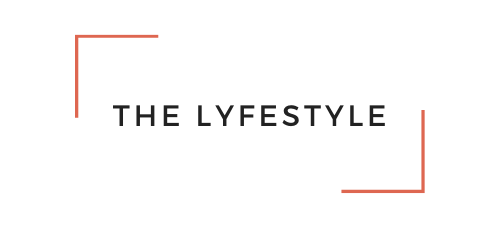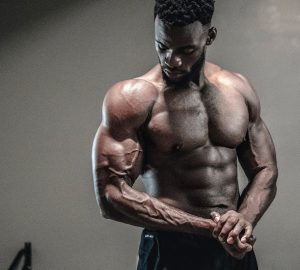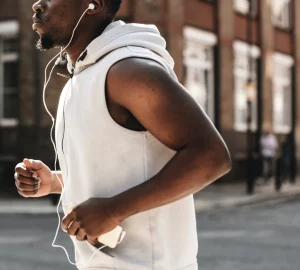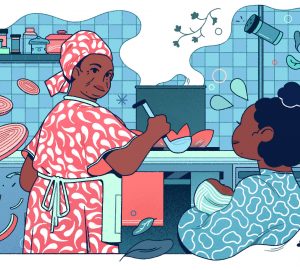HEN YOU break your leg, the first thought that enters your brain is probably not, “Oh no, how am I going to tell someone that I broke my leg? What will they think of me?” It’s probably something closer to, “Holy crap, I broke my leg and I need to get some help as soon as possible.”
And although your mental health is as important as your physical health in terms of your overall wellbeing, people tend to struggle with asking for help when it comes to issues that others can’t see. This aversion to talking openly about mental health not only makes life more difficult for so many people. In fact, it’s literally killing them.
It’s never been more important to normalize conversations about mental health. That’s why we convened a roundtable as an extension of our Men(tal) Healthy campaign in collaboration with Rhone featuring four influential men, led by Drs. Drew Ramsey and Gregory Scott Brown, the co-hosts of Friday Sessions and Men’s Health advisors. Joining Dr. Ramsey, Dr. Brown, and myself were NBA star Jimmy Butler, addiction specialist and Bachelorette alumnus Zac Clark, recording artist and Late Show with Stephen Colbert bandleader Jon Batiste, and National Geographic photographer Cory Richards. Over the course of an hour, we talked about vulnerability, mental health turning points, and strategies for finding more joy in life.
This conversation has been edited for space and clarity:
Gregory Scott Brown: What inspired you to open up about mental health?
Cory Richards: I was on an expedition in Tibet. Especially after I’d gone to rehab and into treatment for alcoholism, I started opening up more and more about [mental health]. But then I was in a position where I honestly felt like I didn’t have anybody to talk to. So I started talking at my audience. It was more of a reflex [because] I didn’t have any other resource. In some ways, I think it was a rudimentary attempt at speaking about mental health to an audience, but it ended up being more of an overshare. What it did was open that door because the feedback that came in was actually really positive, even though it wasn’t articulated very well. All of a sudden, I was like, “Oh, this can be meaningful for people.”
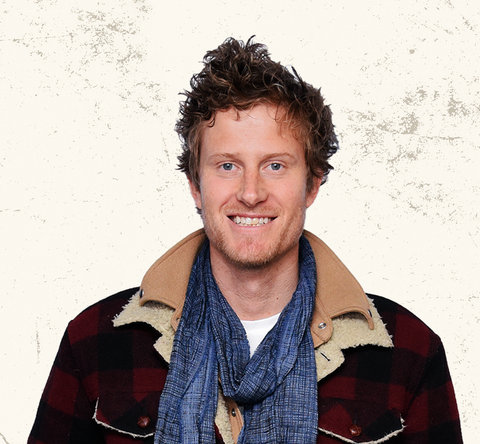
Brown: Cory, you push your body and your mind to its limits as an adventurer. How has that played a role in helping you learn more about yourself?
Richards: Well, first and foremost, like I’m writing a lot about this right now. So there’s a lot of discovery that’s coming through that process. In some ways, I think the physical pursuit was at times its own addiction. At times, it was sort of a coping mechanism. And then other times, it could be a positive outlet for anxiety, angst, artistic expression. What’s interesting to me is that it has occupied both spaces, right? When, when I’ve been really struggling, oftentimes, I’ve run to things like photography and climbing as a sort of escapism, and then other times I’ve allowed it to be an expression. So it’s both helped and been a maladaptive behavior at times. It occupies both spaces.
Drew Ramsey: Thanks Cory. Who else? Mental health is having a moment right now and we’re a group of men who are being vulnerable and open. Why did mental health become more important to you?
Jimmy Butler: I don’t know about being vulnerable and opening up. But I think that mental health is hella important. If your mind’s not right, I don’t think too many other things can go right for you. In my line of work, everybody expects men to be superhuman. They don’t hurt, they feel nothing. It’s like you just push through whatever it is. And that’s just not what we are. We’re human beings. We’re normal people just like everybody else.
And I’ve come to learn as of late that talking does a lot. Expressing who you are does a lot for your mental health. It’s not saying you’ve got a clear mind, but that your mind is right and you’re okay with what’s going on. It’s really hard to do nowadays. But I feel like we’re in a time now where you get time to work on yourself. I think people lose how important your self-health-wealth is, and that’s where mental health comes into it. If your mind’s not right, I don’t care what you’re doing—it’s not going to go too well.
Brown: Jimmy, as an NBA player, your schedule is super unpredictable. You’re in one city one day, another city a different day. How do you find stability in a line of work that can be so mentally and physically demanding?
Butler: Nothing’s ever going to be the same, so I know what’s expected. At any point in time, something can change. But in my mind, as long as I realize, something’s gonna happen—and I don’t know when it’s gonna happen, where it’s gonna happen, how it’s gonna happen—I think I’m okay with it. Then again, I’ve been doing this for 11 years now, and so it’s kind of like the norm. Early on, it was a complete mind-F-word. Now I’m like, “Okay, we’re flying and the plane got held up landing at 3am instead of midnight. But in my mind it’s like, “This is expected.” I know something like this can go wrong, but how are you going to handle it? It’s happened before, it’s gonna happen again, it’ll probably happen again in three weeks.
So I think it’s all about trying to expect the unexpected at any point. But when you think about it, that kind gets me going a little bit, knowing I’m so good with being uncomfortable now that I thrive more. If it’s too much of the same thing, I get complacent and I get comfortable. I don’t ever like to feel that way.
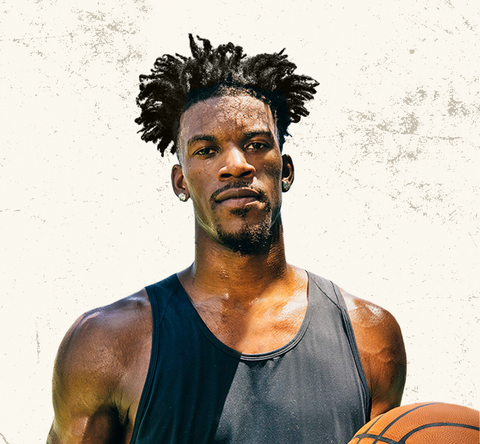
Ramsey: Jimmy, do you disagree with that idea of vulnerability? Because that sounds like vulnerability to me.
Butler: I guess what I mean is I’m very open to whatever comes at me and secure in that. I do have a structure. I keep the same people around me, day in and day out. You hear people say, keep a small circle, but I really am the epitome of that. So no matter what, I keep the same energy: if I play well, if I play bad, if I’m sitting, if I’m sick. Everything’s not all good and everything’s not all bad. We talk about everything. It’s an open door around here. If it’s 1pm, if it’s 3am, it’s like, “Wake up, we need to talk.” And I think that’s the part that that helps me, knowing that my people really love me, my people really care for me, and they want what’s best for me as I want what’s best for them. So that’s what keeps me on this path of everything is going to be okay. The people I’m around every single day, they just want to make sure that I’m okay.
Brown: You’ve also mentioned the role of journaling in that keeping that communication with your inner self. What role does that play in helping find stability?
Butler: Journaling is where I really get my rawest emotions out. I feel like I can talk trash about anybody and nobody will ever see it. And I actually type it into the computer now so I can lock it because I have a thing where I do stuff and I always lose it. I’ve lost like five journals, and I know if somebody finds them, this person’s gonna hate Jimmy because I’ll be talking cash money in my journals. I think that journaling is the best way to express yourself because it’s you versus you. You’re literally spilling everything out on a piece of paper. You ain’t got to worry about nobody judging you. And then you get to go back and go, “I was really feeling like this two days ago, man. I did that.”
Zac Clark: Hearing Jimmy talk about that tight circle, one of the biggest things I had to learn was I can’t give my power away to other people. I can’t give my power away to people that don’t know me. When I do that, that’s when I’ll get jacked up. I start to doubt myself and get to a place where that cycle is gnarly. All of a sudden, I’ll think I’m a bad person, and I know that’s not true. My mental health journey, it’s had two lives. 10 years ago, I’m smoking crack, shooting dope, running around Philly and Camden. I need to get sober, and so I end up going to rehab and I get sober. I’m away for four and a half months and it’s like I’m injected back into the world. I’m telling myself, “I should feel better, right?” Or there’s still something wrong with me. I had to learn to really work through that and understand how to live in the world. It’s never as good as it seems and it’s never as bad as it seems. It’s always somewhere in the middle. If I can get to that place where I accept that, I’m gonna soar.

Then I start helping people. I work in addiction, recovery, and mental illness. I’m helping people and I’m trying to be of service and I’m doing interventions. People are telling me, “You’re such a hero,” and you’re this and you’re that. I started to feel like a fraud, because if only they knew who I really felt. Being able to actually share that in an environment like this with other men has been key for me because it doesn’t mean I’m a bad person if I’m helping people and then I go home at night.
The third phase of this thing is 10 years into this new life in terms of sobriety and physical fitness and mental health and helping other people, I end up on this crazy TV show, and we’re in the middle of a pandemic. I went on this show and I left the world for three month. Now, all of a sudden, I have all these eyes on me. I’ve got people crawling out of the woodworks that I haven’t heard from in 10, 15, 20 years. I started to get super prideful. Like, “What do you want from me now, but you didn’t want you don’t want anything from you before?”
I’m journaling, meditating, and really looking inward to understand who I am as a man, and who the people are that truly love me. It’s okay to say I need some help. When shit’s going good, let that flow out into the world because at the end of the day, I’ve had a lot of positive reflection back from the world.
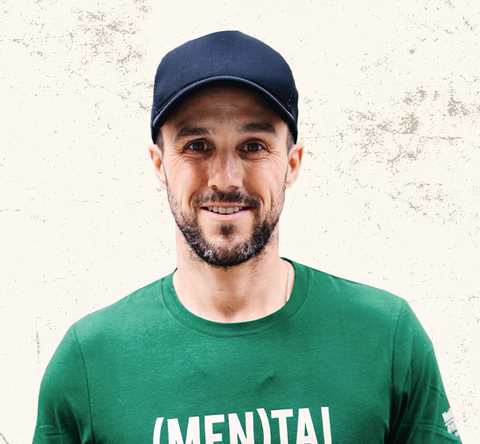
Brown: When it comes to being vulnerable, people are not looking at Drew and I the way that they’re looking and paying attention to every single thing that you guys are doing. As public figures, are there particular challenges there that make it more difficult to actually open up about these things?
Jon Batiste: This is something that I really recommend for anybody out there: Learn yourself and notice the signs that your body is giving you. There’s things that happen within—thoughts that you have, feelings that you have—that lead to places that are not healthy for you. They lead to behaviors that are not healthy for you. Recognizing that in myself was something that really got me to understand, “Okay, there’s a separation here.” There’s got to be boundaries between my public life and my work. My life is based around what really matters most to me. I’m talking about family and friends and community. That helps you to not get caught up in the circus. It’s insatiable, and you can constantly give [the circus] something to present to the public. But the end of the day, it’s a show. So you’ve got to remember, whatever line of work you’re in, what is it? Find those things that matter.
Richards: I think it’s really interesting that in so many ways, my job has now become tied to mental health advocacy. And the irony of that is, like Zac said, I’ll say stuff and I’ll talk really openly, and then people think that I have it figured out because I’m talking about it in public.
The truth is, I don’t have anything fucking figured out. None of it. I just have the vocabulary to sort of disseminate or put forth my experience, but it doesn’t mean I’m better or I’m healed or I don’t struggle every single day.
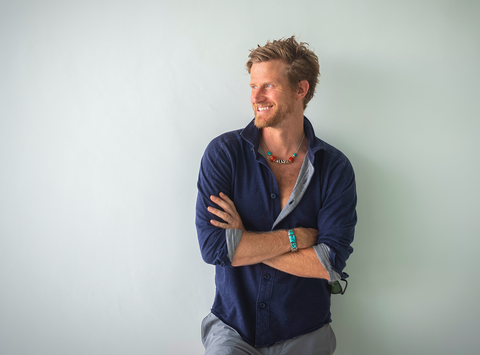
Vulnerability has become this buzzword, and I think for good reason. But truthfully, what I see as vulnerability is the act of being human. It’s like what Jimmy said: Just saying whatever you need to say. That’s what we’re heralding as being vulnerable. All it is is just showing up in your most authentic self and saying whatever the fuck it is that you need to say. It’s taken me 40 years to actually settle into that sort of rhythm of just being myself, and it takes stuff like this where other men are coming together and talking about substance abuse, talking about having a fully erratic lifestyle where they can’t rely on one thing or the other and finding some sort of peaceful path through that. It’s talking about that darker stuff that a lot of us choose not to because we’re supposed to be men and strong and it shouldn’t bother us.
Brown: Cory, was there a turning point for you?
Richards: My dad was diagnosed with cancer about a year and a half ago. He’s probably going to die before he’s 80, which, when I turned 40, was big. I hope I don’t die when I’m 80. But it was like, “Oh my God, I’m halfway through.” If I die at the same time, what meaning does my life have? What I’ve come to is that this isn’t for anybody else. Of course, I’m not saying to be selfish. I’m saying your life is not necessarily for anybody else. You should live the authentic expression of yourself that you can. So much of what I did—climbing, photography—was fucking performative. I was in it for some level of validation because for whatever reason I didn’t feel good enough. So I spent my life living for other people, and that ended up hurting me more than anything else. [Your life is] not for anybody else. This is for you.

Ramsey: What about you, Jon? You had some powerful thoughts that you had to create a separation from to be successful. Can you share a little more about that?
Batiste: My first panic attack was a turning point because I didn’t know what that was. I come from the hood in New Orleans where we don’t talk about panic attacks or therapy. So just the whole vision of what was happening to my body, not knowing what’s happening, having so much going on. I’d booked 14-hour, 15-hour days, back to back, never having taken a vacation—not believing in vacation. I moved to New York when I was 17. And from going to conservatory to then doing all the things I was doing—touring, writing for movies, playing music—just the whole aspect of adrenaline and presenting yourself on stage to people, and looking for validation. Looking for excellence. Striving to be the best you can be. Reading biographies trying to be like the greats.
Then all of a sudden your body’s like, “Hey, bro, you gotta chill, brother. Sit down.” And then your heart almost stops going to the ER as a 20-year-old. Also my lady, she was diagnosed with cancer at 21. She went through a five year battle and she’s in remission now. But I was going to see her at that age. Performing for a cancer ward is a realization that I’m grateful even in the darkness of that to have had.
I think you can look at everything as a gift and curse. There’s definitely been that duality [in my life] of seeing things that are dark, but learning from them, and then having tools and coming up with mechanisms to preserve myself and to protect and provide for my community. Even in the darkest situation that you might be going through—even if you lose something coming out of the other side of it—there’s something that you can always gain from it.
There are tools and mechanisms of how to create distance between what’s good for you and what’s not. I’ve got to have 15 minutes where I just sit with a glass of water every day and breathe. We sit on the porch in the South. So I sit on the porch and breathe. I like country music, I like jazz. Certain types of music put me in a place. Just whatever you’re in, there’s a way that you can come out of it with something of great value in your life.

Brown: How do you find joy in the midst of some difficult times that you’ve been through?
Batiste: I learned this from a few people. Having affirmations that are on loop in your head, you can train yourself. It’s like training a muscle, right? So you train yourself to internalize certain truths about your existence. “I’m still here, I’m breathing. I can go out into the world.” I can do something with that alone. Just that fact alone—the fact that I’m still here and I’m breathing— that makes me happy. You say that to yourself over and over through good times and bad. It’s never ingrained because humans are frail. We have to keep drilling things in. That’s what most religious practices or spiritual practices are all about. You constantly have to drill it in.
You don’t know what real joy is about unless you have had something [painful]. And all of us will have something. If you ain’t had it yet, it is coming. So your ticket to joy is right around the corner.
Batiste: Cory, Jimmy, Zack, I know y’all have performed through pain. What’s your go-to to get to the other side when you are in excruciating pain and you can’t turn back?
Butler: I go to my Whys, the reason that I do things. One, my daughter is my joy. I love the fact that I get in at 3 a.m. from the road and it’s like she knows that I’m home and she wakes up. It’s the most incredible feeling that I’ve ever had in my life. So when I’m hurting, I just think I’ve got to do this for her. I’ve also got to do this for my guys around me on the daily. They’re like, “He did it, so I can do it.”
And then I think the second most important thing to me is nobody gives a fuck when you’re hurting and you’ve got a job to do. People still expect you to do the job. They expect you to win, they expect you to produce, they expect you to do everything. That was my turning point: Realizing people don’t care. They don’t. They don’t care how you’re feeling. When you get the people that do care, those are your people. Humans are selfish by nature. But when you get the right group of individuals around that truly, genuinely care about you, I think it’s the most incredible thing.
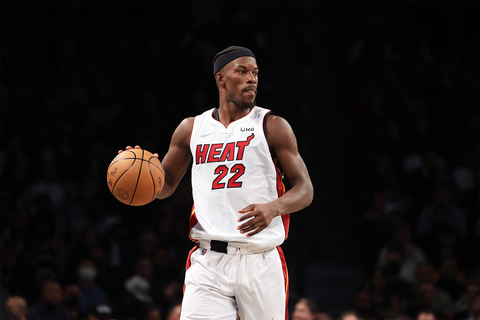
Clark: I try to appreciate the pain a little bit. It fuels you to a certain degree. I’ve lived enough time on this planet to understand I’m going to get punched in the face. There’s people that haven’t been punched in the face, or they’re gonna get punched in the face. It’s how I respond to it.
Original post from Men’s Health




